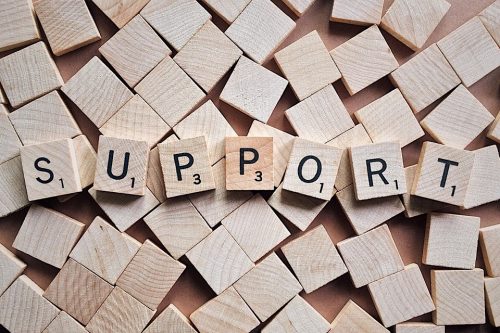
Even with our best intentions at heart, expressing support for our loved ones with mental health problems can be tricky. We can only know so much about what they are going through, and because of this, some of our efforts do not necessarily translate to the best courses of actions. However, this should not discourage any of us from reaching out. All it takes is a better understanding of how we can be there for the people we hold dear. Here is a guide to offering your support to someone battling mental health issues.
Know More About Their Condition
As with a lot of pursuits, knowledge comes before action – and being a better friend is no exception. To get a better understanding of the situations, they are going through; it helps to know as much as you can about what they’re going through. From knowing its formal definition, to how this manifests itself into someone’s day-today, doing so – in a way – places you in their shoes. It will help you to be more mindful of the things that will be helping them. As well as what will not be helpful for your friends to get better.
Validate What They Are Saying
Someone struggling with emotions and experiences that are hard to process can feel like they are alone in the battle they are facing. In these times, the warmth of hearing “I understand” or a “your feelings are valid” can ease them a lot and make them feel less alone.
According to Dr. Lindsay Macchia, an associate psychologist at the Child Mind Institute, “Validation communicates to another person that their emotions make sense given the context they are in.” She adds that “Even if you have never been in that particular situation or felt an emotion quite as strongly, validating your friend shows that this is not an ‘overreaction’ or an ‘underreaction.’ It is how they feel, and that is perfectly acceptable.”

Let Them Share As Little Or As Much As They Want To
In our desire to know how they feel and how they are doing, we sometimes can place a lot of pressure on the people we love. Understand that letting their guard down and talking about their deepest worries and feelings takes immense levels readiness and trust – both of which do not come right away. Never rush them into opening up, and let them do so in a moment and place where they feel comfortable expressing themselves.
Listen More
Whenever our loved ones open up about their struggles, immediately replying and giving pieces of advice can come to us as the most obvious choice. In many instances, people who are going through something need someone to listen. Be a safe space for your loved ones – the person that they can quickly turn to and pour their most heartfelt sentiments to without the fear of being mocked or judged. Listen intently, sincerely, and open-mindedly.
Do Not Attempt To Diagnose Them
Glad to offer your support, you probably are keen on being able to help your loved ones in any way you can. Despite this, it is essential to remember that at the end of the day, you are not a trained, professional counselor. Avoid jumping into conclusions and making assumptions about what is wrong with how they feel, more so offer any solution based on your opinion.

Help Them Get Help
Instead of attempting to diagnose your loved ones, what you can try to offer is bridging them to help. It can range from aiding them to shortlist counseling facilities to even helping them in setting up an appointment. Amid this, never take full control over their journey to well-being. Only help when help is welcome, and remember that every decision – little or small – is theirs to make. In Dr. Nikki Martinez, Psy.D. blog, she says, “If you are struggling with low self-esteem, it is encouraged that you seek some type of help and support to work through this issue, and to help you be the best version of yourself that you can be.”
Look After Yourself
A candle can only light another candle if it has a fire to share. Before reaching out and having a helping hand, it is vital to ensure that you are in the right state to do so. Have a sense of awareness over how you are feeling and keep your mind and body in check. Take care of yourself before you start to take care of others. “Give yourself permission to do some serious emotional healing to become your happiest self and remember, it is a process more than a destination.” A reminder from Roya R. Rad, MA, PsyD.